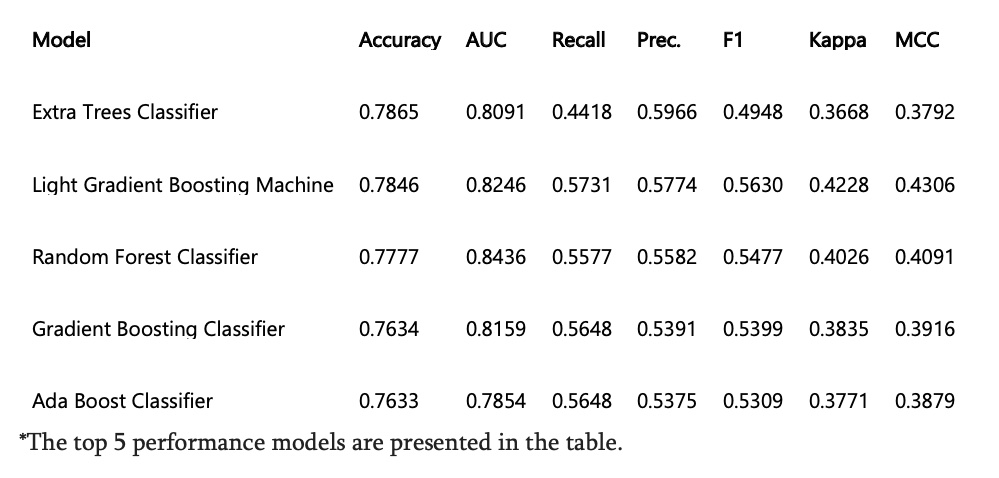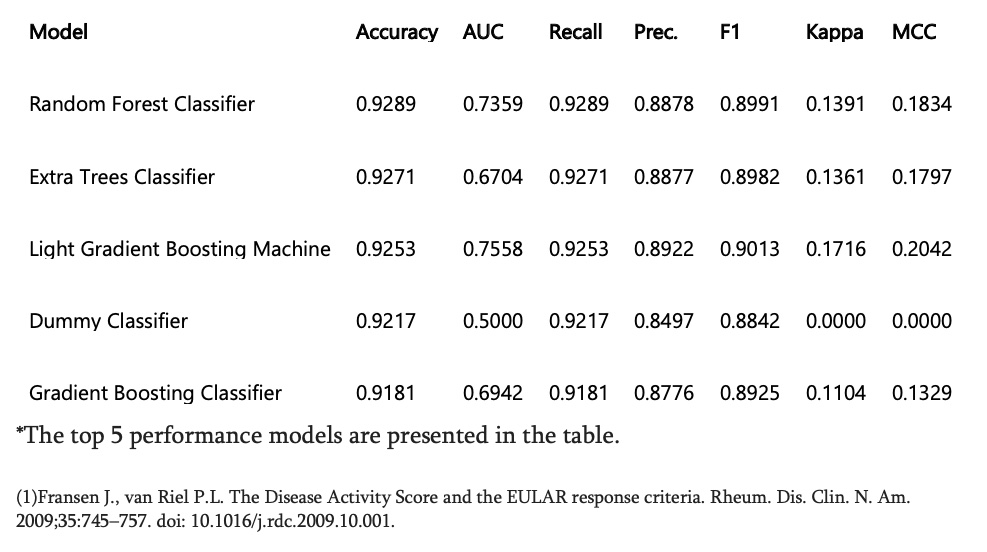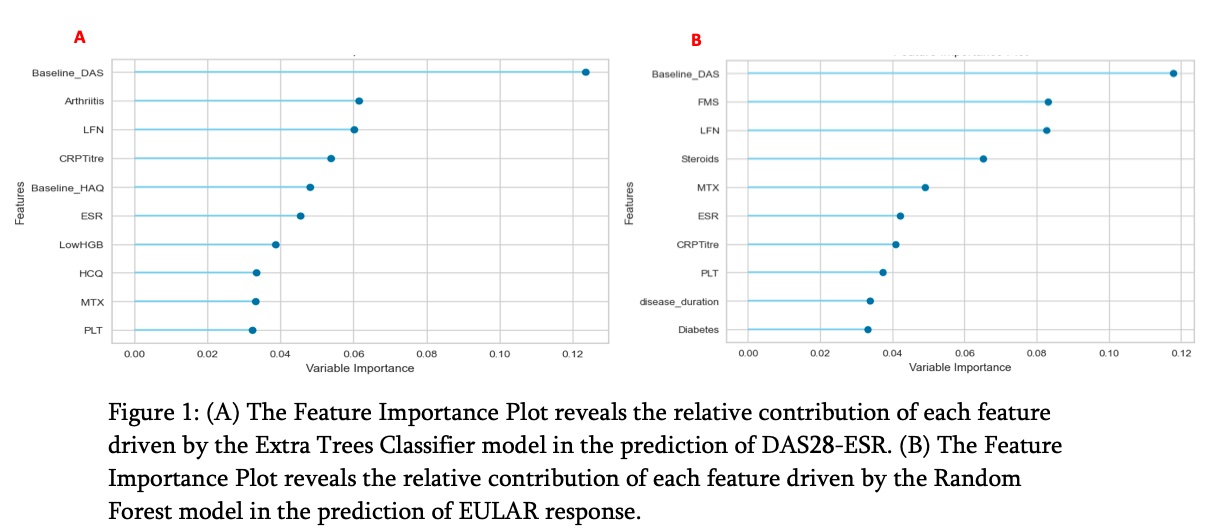Session Information
Session Type: Poster Session B
Session Time: 10:30AM-12:30PM
Background/Purpose: Rheumatoid arthritis (RA) often exhibits fluctuating and challenging-to-assess clinical courses that lead to irreversible joint destruction. However, a “Treat-to-Target” strategy is recommended aiming to achieve low disease activity, It is evident that clear prediction of the disease activity over time and the therapeutic response is not straightforward due to the multidimensionality of the disease.
Machine learning (ML) could offer a powerful approach to address this challenge by analyzing complex data patterns and identifying subtle relationships between a wide range of data, which might be missed by traditional methods. In this prospective study, we aimed to develop and validate a ML model that can accurately predict RA disease activity and the EULAR response (1). We further investigated the key factors contributing to these future outcomes.
Methods: A cohort of 804 RA patients fulfilling the 2010 ACR/EULAR criteria from the Egyptian College of Rheumatology (ECR)-RA study group was recruited. Demographic, baseline clinical characteristics, comorbidities, disease activity, medication use, laboratory findings, and functional assessment using health assessment questionnaire (HAQ) were collected and considered as predictors in the model.
The endpoints were the Disease Activity Score (DAS28-ESR) and the EULAR response. For classification, we defined two disease states, active disease (DAS28-ESR >3.2) and inactive (DAS28-ESR =< 3.2) at next visit. The EULAR response criteria (1) classify individual patients as non-, or moderate/good responders, dependent on the extent of change and the level of disease activity reached.
We used PyCaret to evaluate 14 machine-learning models on the current dataset. Model performance was assessed using 10-fold cross-validation and the model metrics were conducted to identify key predictors.
Results: A total of 804 RA patients were included, with a mean age of 43.2 (SD: 12.7) years; 84.3% were female, and the median disease duration was 5 years.
Using PyCaret, the Extra Trees Classifier was the top performer in predicting DAS28 flare with a mean area under the curve (AUC) of 81%, sensitivity of 44%, specificity of 69.9%, and achieving an accuracy of 79% (Table 1). Further analysis revealed that baseline DAS28 is the leading feature affecting future flare, followed by the presence of arthritis, leflunomide use, CRP titre, and baseline HAQ (figure 1-A).
Predicted EULAR response using PyCaret revealed that the Random Forest Classifier is the top performer based on overall accuracy of 93%, AUC of 73%, and sensitivity of 93% (Table 2). The most consistent predictive variable for EULAR response was baseline DAS28 followed by fibromyalgia symptoms (figure 1-B). As expected, leflunomide, steroid, and methotrexate use were among the top predictors for good EULAR response.
Conclusion: Our study highlights the potential of ML for predicting future disease activity and response to treatment in RA. ML approach could facilitate the individualized management of RA patients, leading to improved outcomes. Further work is needed to validate this approach.
To cite this abstract in AMA style:
Hammam N, Nahool T, Yasser A, F Mohamed E, Tharwat S, Mosad Mosa D, Nassr M, Ismail F, R El Shereef R, Y. Elsaid N, Hammam O, S. Al‑Adle S, A Gheita T. Machine Learning-Driven Models for Disease Activity Prediction and Therapeutic Response Evaluation in Rheumatoid Arthritis Patients: An Analysis of Data from the Multicentre, Prospective, Egyptian Collage of Rheumatology (ECR) Study Group [abstract]. Arthritis Rheumatol. 2024; 76 (suppl 9). https://acrabstracts.org/abstract/machine-learning-driven-models-for-disease-activity-prediction-and-therapeutic-response-evaluation-in-rheumatoid-arthritis-patients-an-analysis-of-data-from-the-multicentre-prospective-egyptian-col/. Accessed .« Back to ACR Convergence 2024
ACR Meeting Abstracts - https://acrabstracts.org/abstract/machine-learning-driven-models-for-disease-activity-prediction-and-therapeutic-response-evaluation-in-rheumatoid-arthritis-patients-an-analysis-of-data-from-the-multicentre-prospective-egyptian-col/



